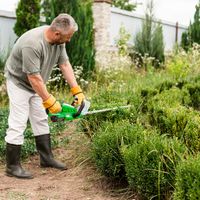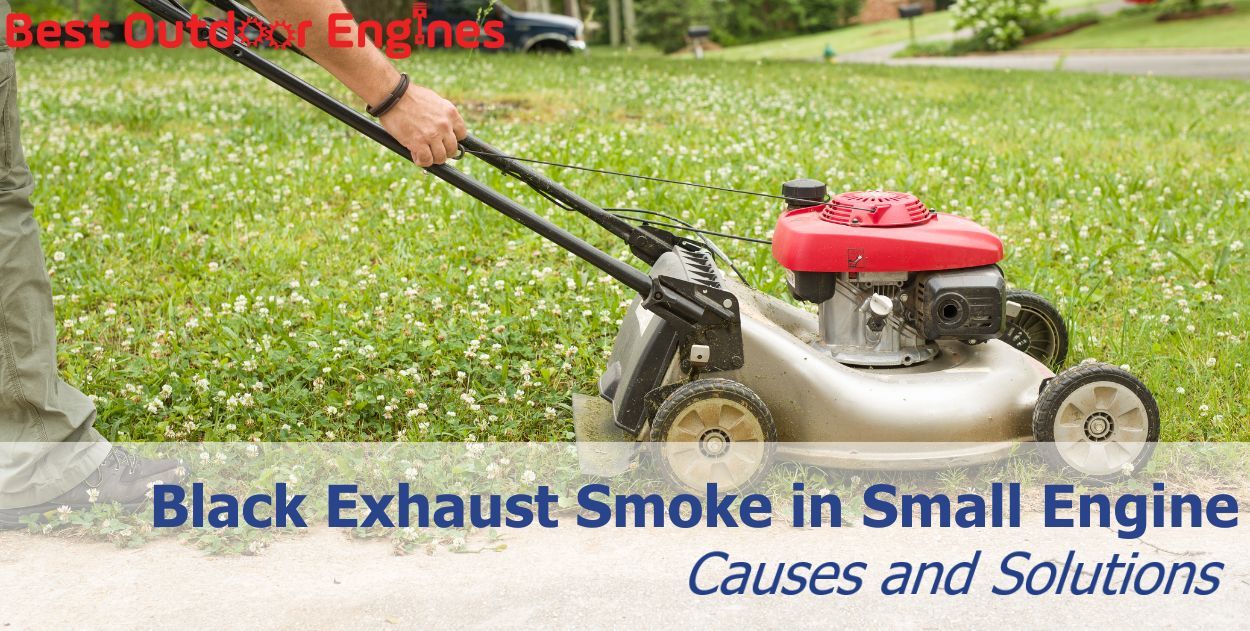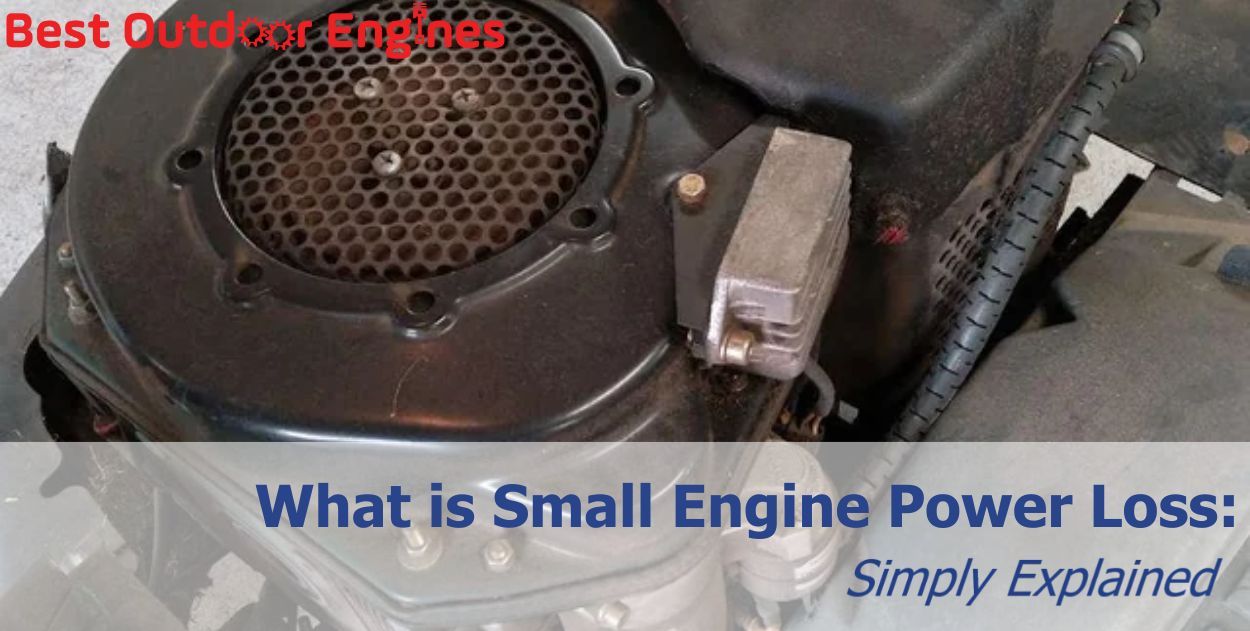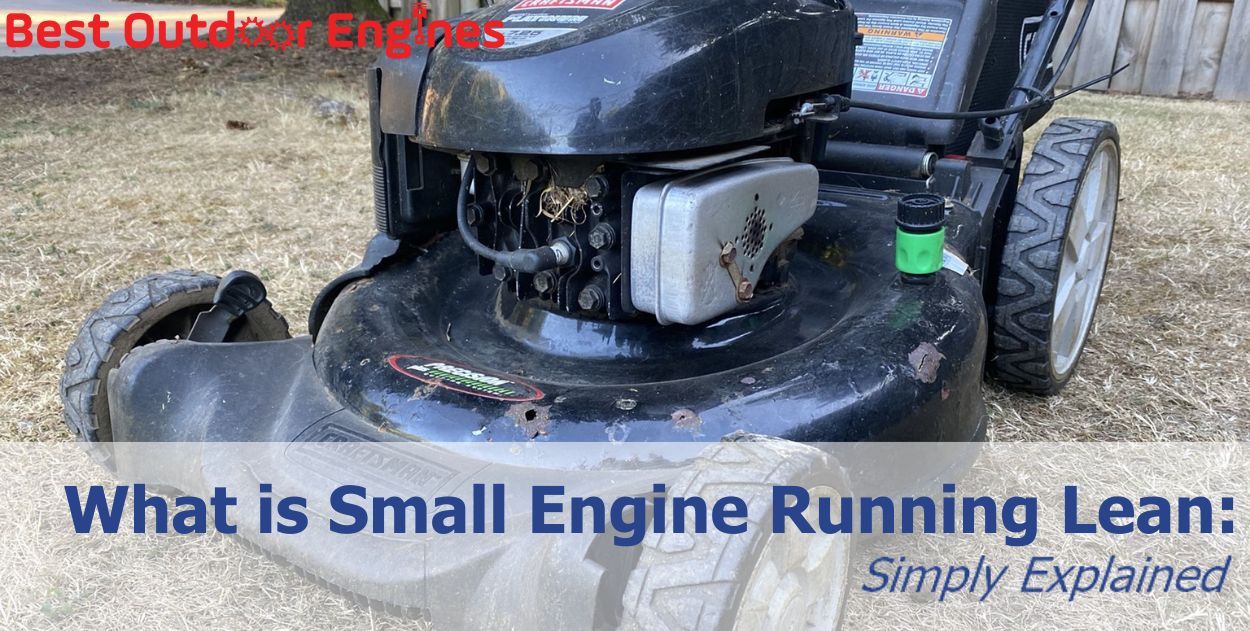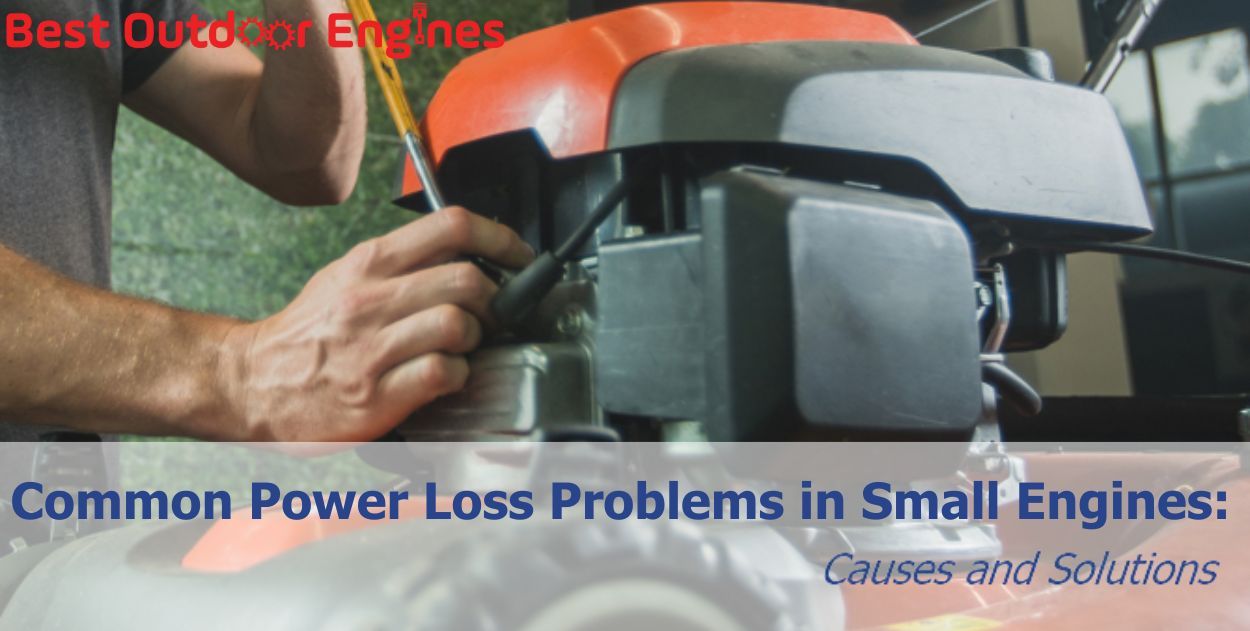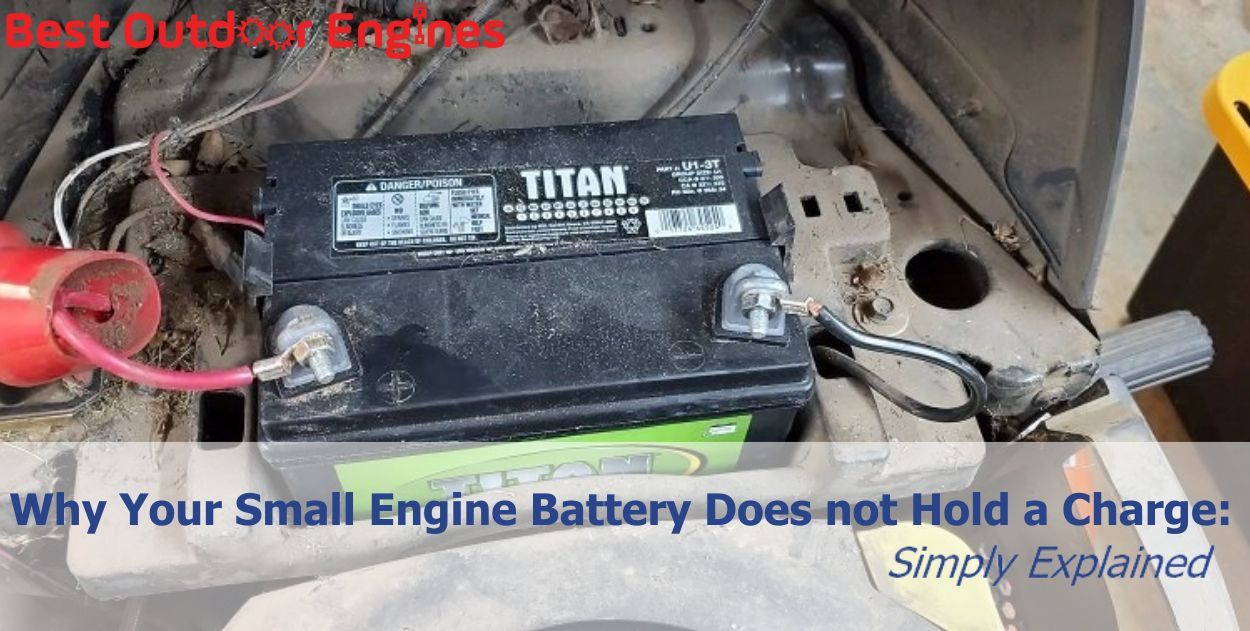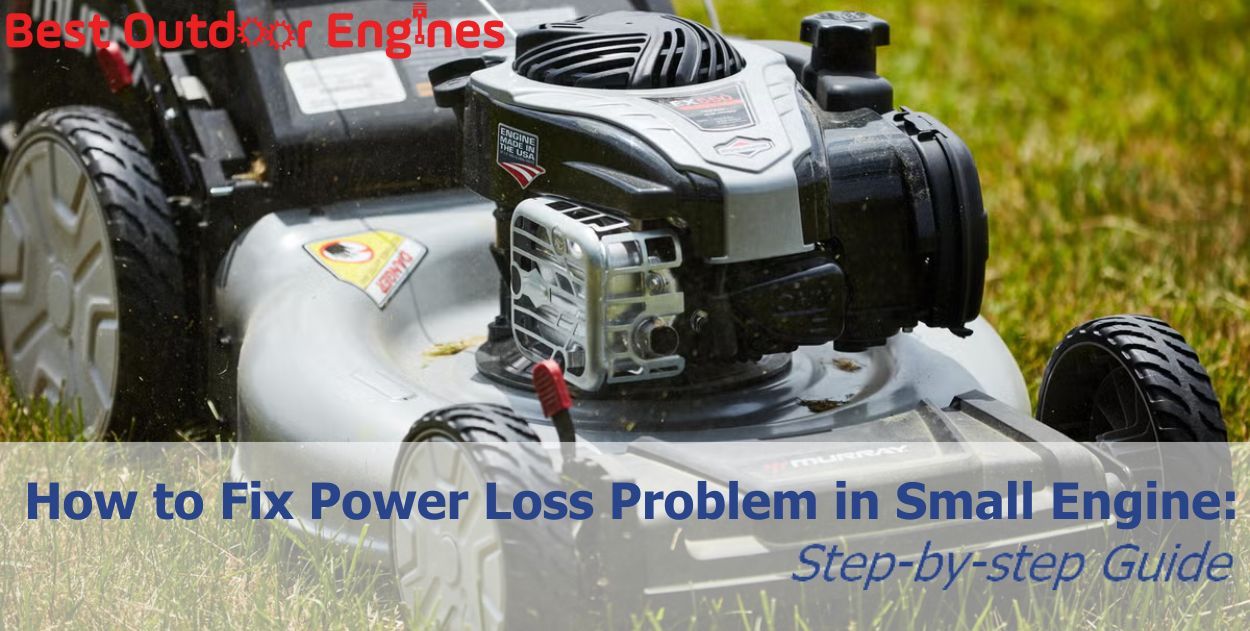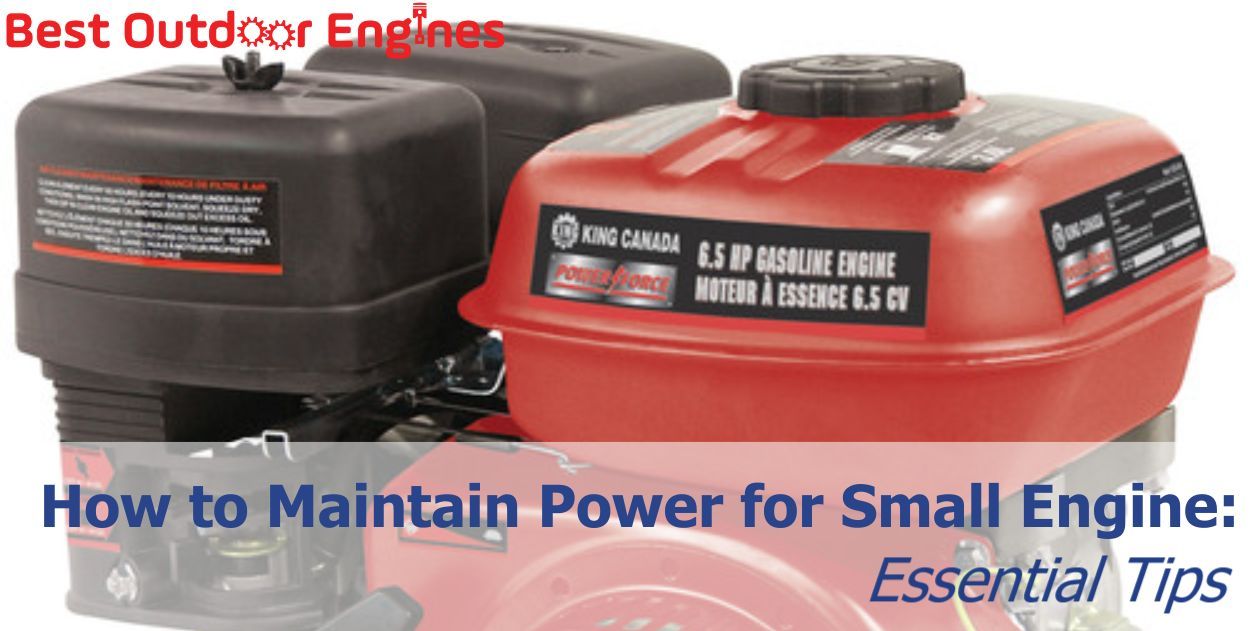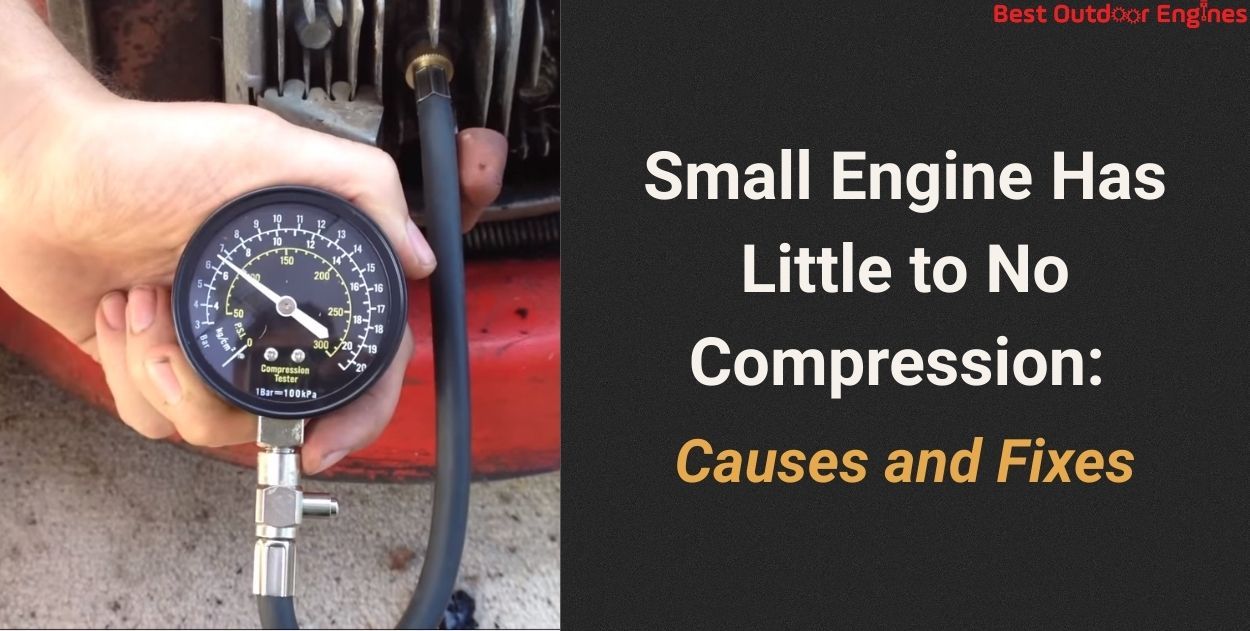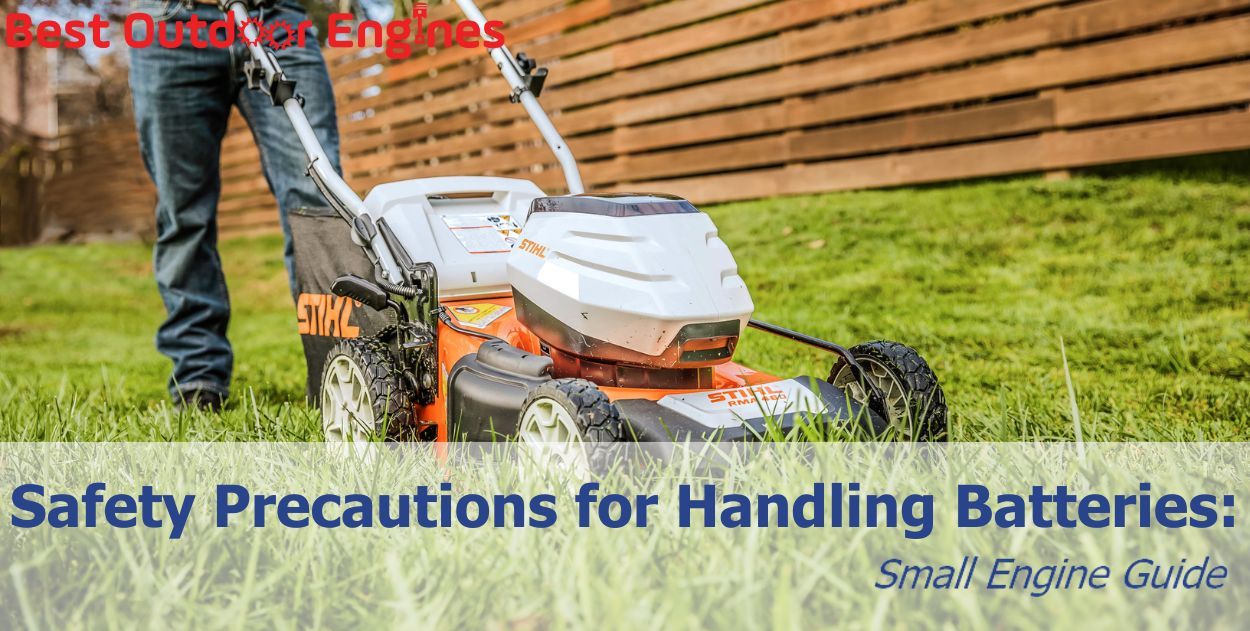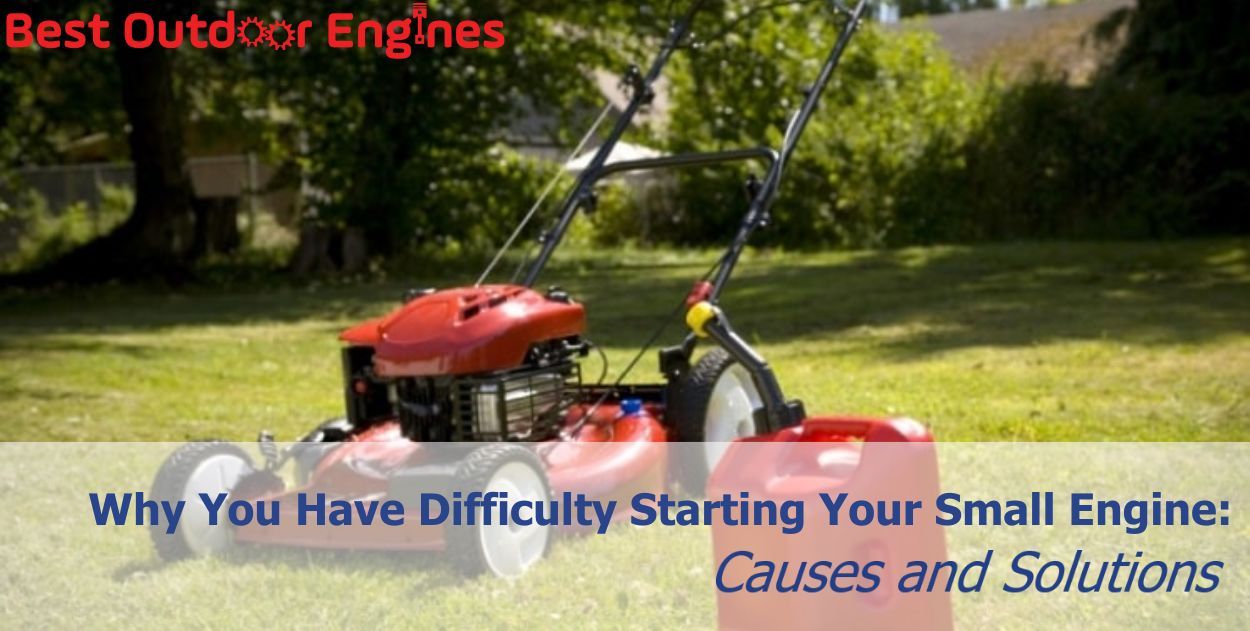What Causes Your Small Engine Surging: Small Engine Guide
If you ever use a lawnmower or any outdoor engines, you’ll find out that sometimes your engine has an unusual speed and makes some weird noise. This may be surging in your small engine and you have got to the right place to learn about it.

What Is Surging In A Small Engine?
Surging in a small engine refers to irregular fluctuations in engine speed. It manifests as an engine that accelerates and decelerates unexpectedly, akin to a repetitive revving or pulsating motion. You may get surging in your small engine more often due to problems with the fuel, air intake, spark delivery, or carburetor adjustments. Surging can result from issues such as clogged filters, dirty spark plugs, inadequate fuel flow, or air intake restrictions.
Before grabbing tools to tinker with the carburetor, it's wise to investigate other possible causes behind the surging issue your lawn mower is experiencing. The problem might not only stem from the carburetor but could originate elsewhere in the fuel system. So, it's important to eliminate other potential causes before diving into carburetor troubleshooting.
The Quality of Gasoline
One significant culprit for a surging lawn mower engine could be bad or old gasoline. When gasoline quality degrades, it combusts irregularly, leading to various engine performance problems.
How to fix this: You can visually inspect the gas in your mower's tank and compare it with fresh gas to determine if it's gone bad.
Blocked Fuel Cap Vent
Lawn mower fuel filler caps typically have small vents to maintain proper pressure in the tank. If these vents get clogged with dirt, incorrect pressure can disrupt fuel flow to the carburetor, causing surging.
How to fix this: Checking and clearing any blockage in the cap's vent hole can resolve this issue.
Dirty Fuel Filter
A dirty fuel filter affects fuel flow to the carburetor, leading to fluctuating engine revs. A simple visual inspection can determine if the filter is dirty and impeding fuel flow.
How to fix this: Having a spare filter for comparison is a good practice. Compare it. If yours is too old then it may be time to replace.
Dirty Air Filter
Similar to the fuel filter, a dirty air filter limits air intake into the carburetor, affecting the fuel-air mixture and potentially causing surging.
How to fix this: A visual inspection of the air filter is recommended to ensure it's clean and allows proper airflow.
Fouling Spark Plug
A faulty or dirty spark plug can cause irregular sparking, resulting in inconsistent combustion and surges in the engine.
How to fix this: Testing the spark plug with an inline spark plug tester or inspecting the electrode can help determine its condition.
Clogged Carburetor Jet
Small jets inside the carburetor can easily get blocked by debris, affecting the fuel-air mixture's delivery to the engine and causing noticeable surging.
How to fix this: Removing the carburetor for inspection is necessary to identify and clear any blockages.
We believe that there are many things you should do when trying to fix your surged engine to keep yourself safe.
Firstly, when engaging in maintenance tasks or repairs, it's crucial to start by turning off the engine and allowing it to cool down. This step ensures safety by preventing accidental starts. Additionally, disconnecting the spark plug wire adds an extra layer of safety against unforeseen engine activation during repair work.
Protective gear is equally important. You should never forget to wear safety goggles shields eyes from debris or harmful chemicals, while gloves safeguard hands from sharp edges or substances that may cause irritation or harm.
Choosing a well-ventilated area for repair work is essential. It helps in averting the inhalation of harmful fumes, such as those emitted by gasoline or cleaning products. Moreover, avoiding enclosed spaces while an engine is running is crucial to prevent exposure to carbon monoxide.
Using the appropriate tools prescribed by the manufacturer is pivotal. Following the manufacturer's guidelines helps in efficiently addressing the issue at hand while reducing risks of potential mishaps.
Handling gasoline with care is imperative. Spills should be avoided, and refueling should be conducted outdoors in a well-ventilated area. It's crucial to maintain a safe distance from open flames or sources of ignition while handling gasoline to prevent fire hazards.
Manufacturer instructions and safety guidelines provided in the owner's manual should be followed meticulously. This includes understanding the parts, fuel system components, and correct assembly procedures.
If uncertainty or discomfort arises while performing repairs, seeking professional assistance from a mechanic or technician experienced in working with small engines is highly advisable. Safety should always be prioritized when dealing with machinery and tools, and seeking expert help ensures both safety and effective resolution of the engine issue.
Engine surging in small engines can result from various issues, but proactive maintenance and timely troubleshooting can mitigate these problems. Understanding the causes and taking preventive measures ensure optimal performance and a longer lifespan for your small engine.
1. How often should I clean or replace the air filter of my lawn mower?
It is recommended to clean or replace the air filter every season or after every 25 hours of use, depending on the manufacturer's instructions.
2. Can I use any type of fuel in my lawn mower?
No, it is important to use the fuel type recommended by the manufacturer. Using the wrong fuel can lead to engine performance issues, including surging.
3. What is the ideal fuel-to-oil ratio for my lawn mower?
The ideal fuel-to-oil ratio depends on the specific model of your lawn mower. Refer to the manufacturer's instructions or consult the owner's manual for the correct ratio.
4. How often should I inspect and replace spark plugs?
Spark plugs should be inspected annually and replaced if they show signs of wear or damage. However, it is recommended to follow the manufacturer's guidelines for your specific lawn mower model.
5. Can I adjust the governor system myself?
While it is possible to adjust the governor system yourself, it is recommended to consult the manufacturer's instructions or seek professional assistance to ensure proper adjustment and prevent further issues.

